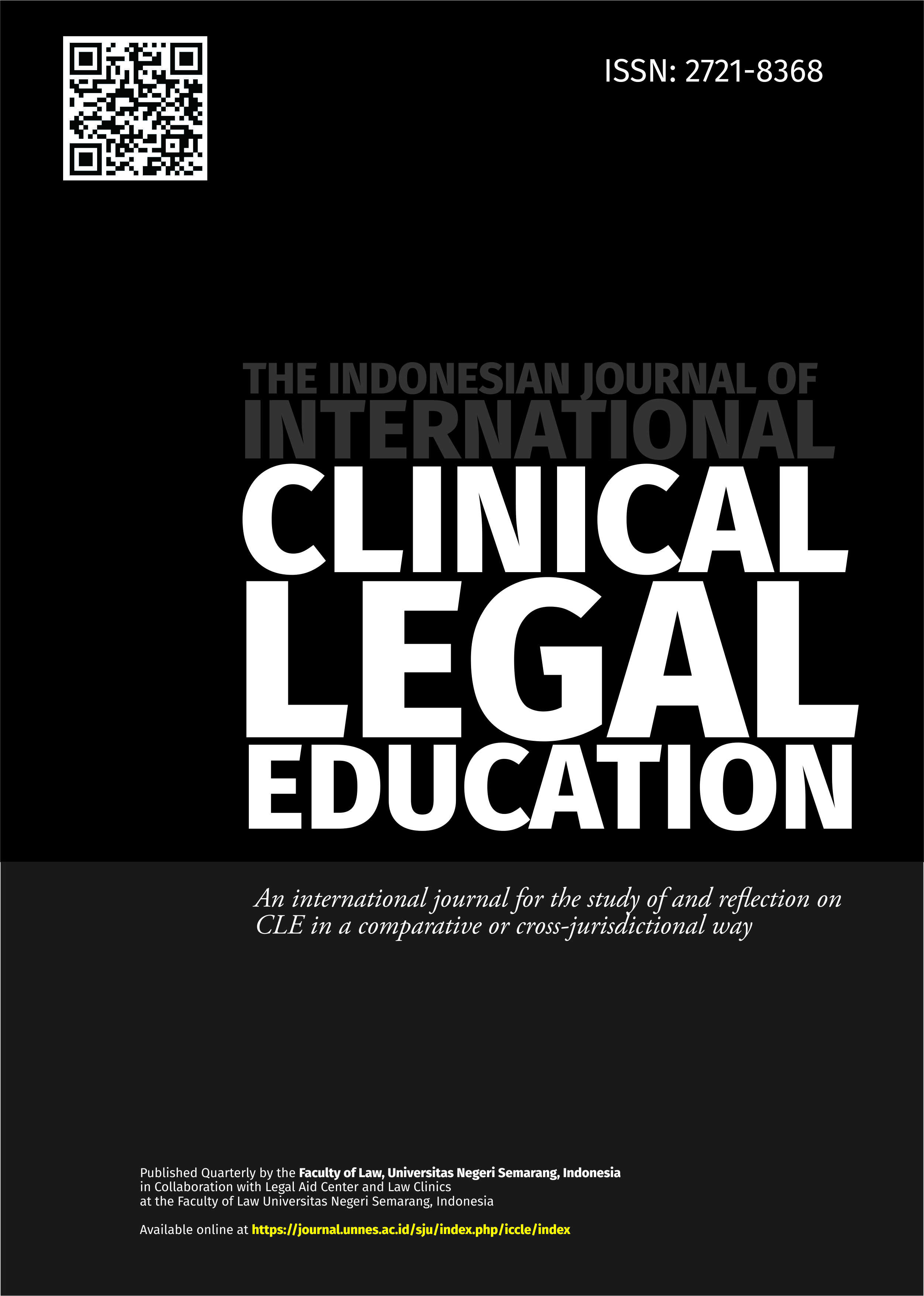The Legality of Providing Legal Aid to Perpetrators of the Crime of Murder in the Perspective of the Theory of Dignified Justice
Main Article Content
Abstract
The Unitary State of the Republic of Indonesia is a state of law. In accordance with Article 1 paragraph (3) of the 1945 Constitution (UUD 1945). As a state of law, Indonesia must guarantee the rights of its citizens to equality and guarantees of justice, including human rights. As stated by Salim, quoting Fredrich Julius Stahl, that the main element of a state based on law is the protection, as well as the recognition of Human Rights (HAM), and upholding dignified justice. Also in Article 28D paragraph (1) of the 1945 Constitution (UUD 1945) reads: "Everyone has the right to recognition, guarantees, protection, and fair legal certainty and equal treatment before the law". This means that the constitution itself has accommodated, the state guarantees the fulfillment of individual rights of citizens and is treated equally before the law. In a state of law, the law is used as the main shield in the movement of government, state, and society. As an effort to realize justice and the spiritual values of humanity (fair and dignified), there is assistance in the form of legal services for every citizen. The existence of a dignified justice theory is a justice provided by a legal system that has spiritual and material dimensions. This theory is a theory of justice that is based on noble values that are rooted in the second principle of Pancasila, "Just and Civilized Humanity" and is inspired by the first principle, "Belief in the One Supreme God".
Article Details

This work is licensed under a Creative Commons Attribution-ShareAlike 4.0 International License.
The copyrights of the article in Indonesian J. Int'l Clinical Leg. Educ. is on the Author(s), however, before publishing, it is required to obtain written confirmation from Author(s) in order to ensure the originality (Author Statement of Originality). The statement is to be signed by at least one of the authors who have obtained the assent of the co-author(s) where applicable. This work licensed under a Creative Commons Attribution-ShareAlike 4.0 International (CC BY-SA 4.0). All writings published in this journal are personal views of the authors and do not represent the views of this journal and the author's affiliated institutions.
References
Handayani, T. A. (2019). Paralole in Penitentiary System Viewed from Theory of Dignified Justice. Surakarta Law and Society Journal, 2(1), 20-32.
Hasan, I. (2008). Analisis Data Penelitian dengan Statistik. Jakarta: Bumi Aksara.
John, R. (2011). A Theory of Justice (Teori Keadilan). Bandung: Pustaka Setia.
Lubis, S. K. (2012). Etika Profesi Hukum. Jakarta: Sinar Grafika.
Lubis, T. M. (1986). Bantuan Hukum dan Kemiskinan Struktural. Jakarta: LP3ES.
Mertokusumo, S. (2011). Kapita Selekta Ilmu Hukum. Yogyakarta: Penerbit Liberty.
Nusantara, A. H. G., & Kusumah, M. W. (1981). Beberapa Pemikiran Mengenai Bantuan Hukum Struktural. Bandung: Alumni.
Prakoso, D. (1988). Hukum Penitensier di Indonesia. Yogyakarta: Liberty
Prasetyo, T. (2015). Keadilan Bermartabat Perspektif Teori Hukum. Jakarta: Nusa Media.
Prasetyo, T. (2020). Initiating Law Reform in Indonesia (From the Dignified Justice Perspective). Jurnal Hukum Magnum Opus, 3(1), 14-25.
Republic of Indonesia. (1945). Undang-Undang Dasar Negara Republik Indonesia (UUD 1945).
Republic of Indonesia. (2003). Undang-Undang Nomor 18 tahun 2003 tentang Advokat.
Republic of Indonesia. (2011). Undang-Undang Nomor 16 tahun 2011 tentang Bantuan Hukum.
Republic of Indonesia. Kitab Undang-Undang Hukum Acara Pidana (KUHAP).
Rudiana, I. N. D., & Setiabudhi, I. K. R. (2021). Reconstruction of the Diversion Concept in a Child Criminal Jurisdiction System Based on Dignified Justice. Prizren Social Science Journal, 5(1), 104-112.
Sadjijono, S. (2011). Bab-Bab Hukum Administrasi. Yogyakarta: Laksbang Pressindo
Salim, H. S., & Nurbani, E. S. (2016). Penerapan Teori Hukum Pada Penelitian Disertasi Dan Tesis (Buku Ketiga). Jakarta: PT. Rajagrafindo Persada.
Soekanto, S., & Mamudji, S. (2003). Penelitian Hukum Normatif : Suatu Tinjauan Singkat. Jakarta: Raja Grafindo Persada
Soemitro, R. H. (1990). Metodologi Penelitian Hukum dan Jurumetri. Jakarta: Ghalia Indonesia.
Sukinta, S. (1997). Peranan Lembaga Bantuan Hukum Bagi Masyarakat dalam Memperoleh Keadilan. Thesis. Semarang: Universitas Diponegoro
Tamrin, M. I., & Farid, M. (2010). Panduan Bantuan Hukum Bagi Paralegal. Yogyakarta: LBH Yogyakarta.
Waluyo, B. (2008). Pidana dan Pemidanaan. Jakarta: Penerbit Sinar Grafika
